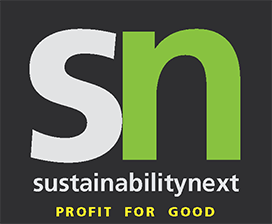India has emerged as the ‘Impact Investment Lab’ of the world attracting $ 10 billion investment in the last ten years. Yet, the size of the investment to the potential is miniscule. Could the ‘new normal’ driven by the Covid pandemic force governments, venture capitalists, development funding institutions to reimagine the impact investment play?
That’s what the impact investment players are hoping for. But with governments engrossed in fighting the pandemic might take a while to think of anything else. But the players are gearing themselves up to push them to draw up a new policy framework. The urgency is because critical sectors like the primary healthcare and education are in a shambles. They not only need rebuilding but need a new approach to the future.
That’s exactly the mission of the report titled ‘India Impact Investing Story – Assessing a Decade of Capital plus Innovation for Impact’ produced by the Impact Investors’ Council and Asha Impact in June 2020, have done. The report notes, “As we enter the new decade facing unprecedented challenges, with a disproportionate effect on the poor and vulnerable, impact investment must move from the side lines to the mainstream, and scale orders of magnitude if India is to achieve its developmental imperatives.”

The report urges “a collective framework for the government (central, state or local), investors (across the risk-return spectrum) and civil society (across a range of social issues) to work together in a productive manner to tackle the most important issues facing our country – access, affordability, jobs and income for millions of our citizens.”
The Asha Impact study reports the cumulative impact of ~500 million beneficiaries represents 450 social enterprises in the last decade. “To achieve the goals by 2030 requires mobilization of $5-7 trillion annually at a global level of which approximately $4 trillion is the need in developing countries. India’s financing gap – after accounting for government spending – is estimated at $565 billion annually.“
Approximately 50% of this need stems from 3 SDGs – SDG 8 ( jobs and economic growth), SDG 11 (sustainable cities) and SDG 5 (gender equality). Impact investing is particularly well suited to help mobilize this much needed private capital as it is extremely well aligned with the SDG priorities.
Strategic Imperatives for Impact Investors (excerpt from the report)
Overall, we need a four pronged approach to leverage the potential of impact investment and use it to deliver the development outcomes we seek. We can consider these four strategic imperatives to scale impact to the next level:
Proactive Government Support – The government needs to provide pro-active support to the sector through capital deployment, targeted policy changes/incentives, and promoting liquidity through platforms like the Social Stock Exchange and credit measures for SMEs and startups.
Private Capital for Public Good – Impact investors need to attract greater amounts of private capital, expanding the global and domestic LP base, and further build the market for early-stage and patient equity, and debt risk capital.
Innovative Financing Models – There is much greater potential for use of outcome-based or pay for success funding instruments like impact bonds and guarantee structures to improve the effectiveness of public and philanthropic spending and unlock additional private risk capital.
Nurturing & Scaling Impact Enterprises – Impact investors need to continue identifying and scaling the best BOP focused innovations across key social sectors, helping them with follow-on capital and strategic support to create impact at a national level, and make responsible and regular exits.
Read full report here
http://ashaimpact.com/







